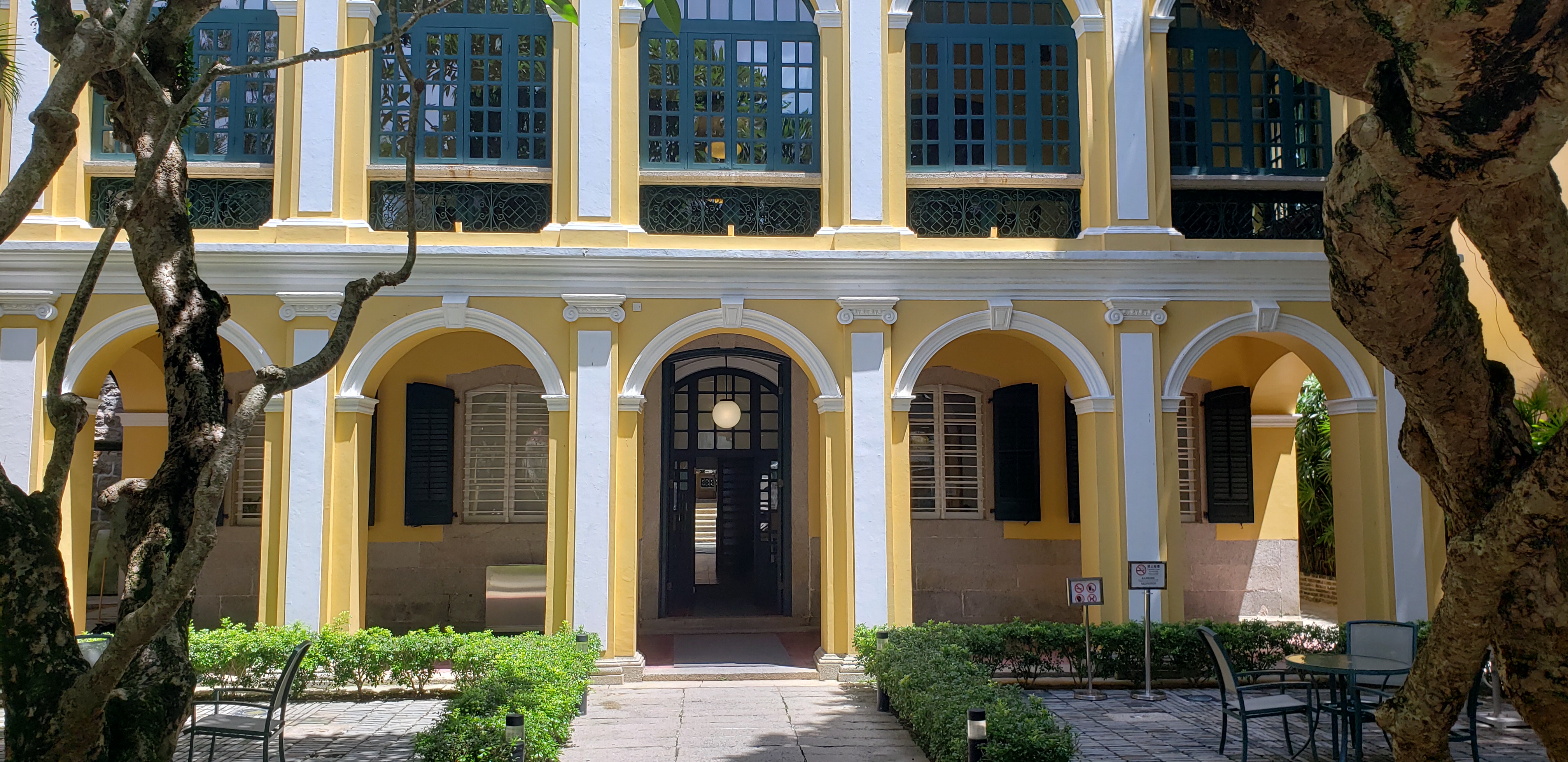Hua Xin

This fall, I've been steadily working my way through Luo's Romance of the Three Kingdoms (the Moss Roberts translation). There's this passage in Book II that concerns Hua Xin (華歆) the imperial secretary under prime minister Cao Cao. Empress Wu, resentful over how the domineering prime minister has essentially taken the royal family hostage, writes to her father to plot against him. However, Cao Cao intercepts the eunuch bearing the Empress's letter, and after finding out about the scheme, charges Hua Xin with seizing her from the palace. Luo describes the secretary as follows:
Hua Xin, known as a talented man, was a close friend of Bing Yuan and of Guan Ning. At the time the trio was called "The Dragon"; Hua Xin was the head, Bing Yuan the stomach, and Guan Ning the tail. One day Guan Ning and Hua Xin turned up a piece of gold while planting some garden vegetables. Guan Ning continued working, but Hua Xin picked it up, examined it, and threw it down again. Another day, Guan Ning and Hua Xin were reading together, when they heard a commotion outside as a man of importance passed by their gate in his carriage. Guan Ning remained seated and did not stir, but Hua Xin put down his book to look. From then on, Guan Ning held a low opinion of Hua Xin and eventually ended the friendship. In later years Guan Ning secluded himself in a storied building in remote Liaodong. He always wore a white cap; and he lived and slept upstairs, never letting his feet touch the ground, thereby demonstrating that he had never served the kingdom of Wei. Hua Xin, however, entered Cao Cao's service after leaving Sun Quan. Such was his story up to the day he arrested the Empress.
My first reaction was, "how absurd!" Three friends go around calling themselves "The Dragon" for no apparent reason. And there's a pair of random incidents, that both only involve two of the friends. What was the point of mentioning the third friend, then? And then there's Guan Ning, who seems rather judgmental -- wasn't it a bit harsh to cut off his friend just because he once got distacted from reading?
But actually, I think the story's meaning is pretty interesting. The two anecdotes about planting garden vegetables and reading show Hua Xin's unreliable character. First, he was led astray by riches. Second, he was led astray by fame. And eventually, he was led astray into serving Cao Cao, stooping so low to do the most despicable deeds just to preserve his own status.
What Hua Xin lacked all along was commitment. He did things halfheartedly, whereas Guan Ning would give the task at hand his full attention. Guan Ning's firmness of mind is a stark contrast to Hua Xin's wandering mind that was easily drawn to shiny objects. Moreoever, Guan knew that continuing to associate with such a character as Hua Xin wouldn't lead anywhere good. "What communion hath light with darkness?" Paul writes in 2 Corinthians, and Guan seems to have had this wisdom in his heart. By having the foresight to break ties with his best friend -- which couldn't have been easy for him -- he was able to preserve his moral purity into old age and beyond. So I think the lessons from the story are two-fold: 1) one who lacks commitment will be easily led into darkness, and 2) it is best not to closely associate with one who won't follow through on their actions or stand firm in thier beliefs.
So as I live my life, may I not be like Hua Xin, always distracted by fantasies of self-enrichment. May I be more like Guan Ning, maintaining concentration in all my small daily tasks, and through this concentration cultivating the endurance of mind to not waver from doing what is right in the bigger moments.